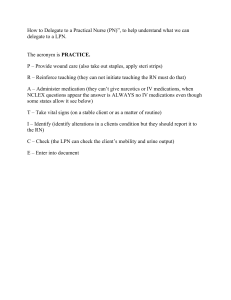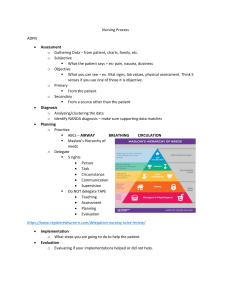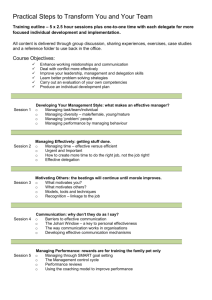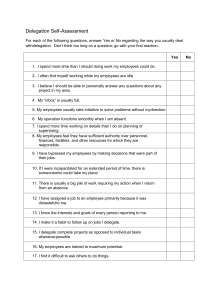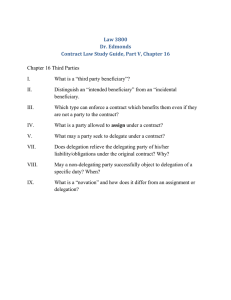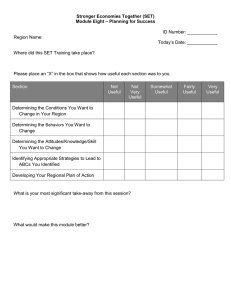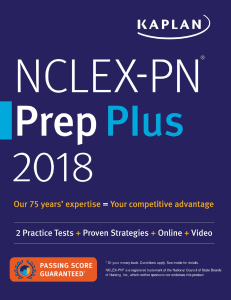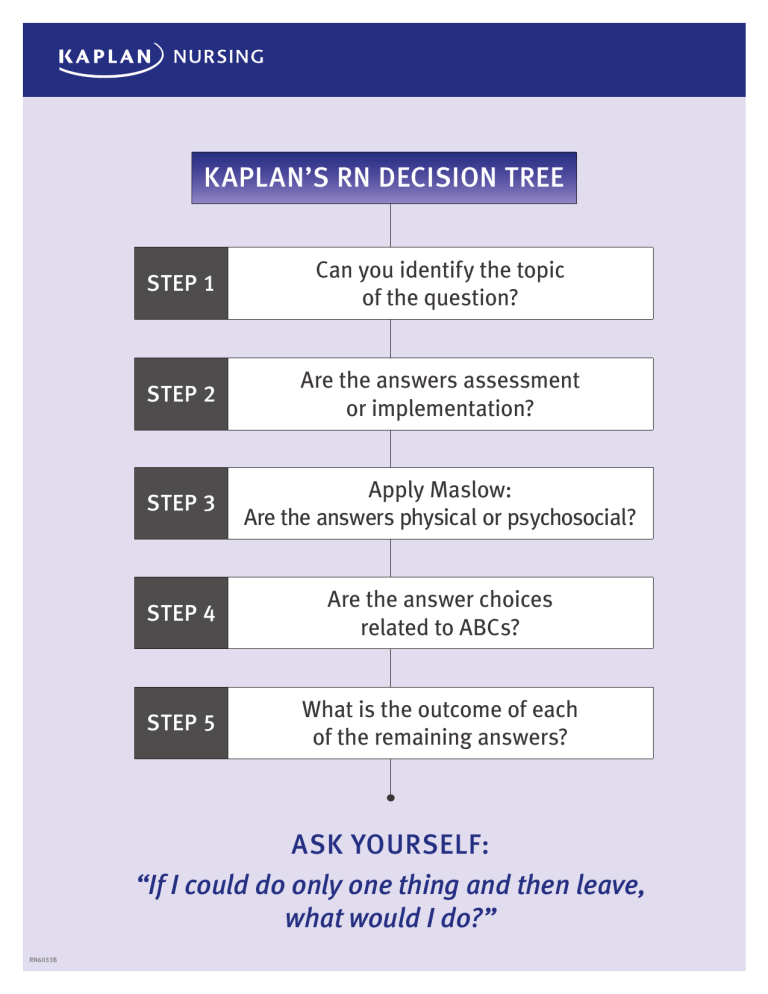
KAPLAN’S RN DECISION TREE STEP 1 Can you identify the topic of the question? STEP 2 Are the answers assessment or implementation? STEP 3 Apply Maslow: Are the answers physical or psychosocial? STEP 4 Are the answer choices related to ABCs? STEP 5 What is the outcome of each of the remaining answers? ASK YOURSELF: “If I could do only one thing and then leave, what would I do?” RN6033B Who Do You See First? CONSIDER: Unstable vs. Stable Unexpected vs. Expected ABCs Acute vs. Chronic Actual vs. Potential RN6034B Common NCLEX Traps Do not ask “Why?”: Do not leave the client. Do not persuade the client. Do not say, “Don’t worry!” Do not pass the buck. Do not read into the question. Do not ‘do nothing.’ RN6035B Therapeutic Communication Tips DO: Do respond to feeling tone. Do provide information. Do focus on the client. Do use silence. Do use presence. DO NOT: Do not ask ‘why’ questions. Do not ask ‘yes/no’ questions, except in the case of possible self-harm. Do not focus on the nurse. Do not explore. Do not say, “Don’t worry!” RN6036B Rules for Delegation RN ASSIGNMENT Cannot delegate assessment, teaching, or nursing judgment LPN/LVN ASSIGNMENT UAP ASSIGNMENT Assign stable clients with expected outcomes Delegate standard, unchanging procedures Five Rights of Delegation RIGHT TASK (scope of practice, stable client) RIGHT CIRCUMSTANCES (workload) RIGHT PERSON (scope of practice) RIGHT COMMUNICATION (specific task to be performed, expected results, follow-up communication) RIGHT SUPERVISION (clear directions, intervene if necessary) RN6037B RN6039B
